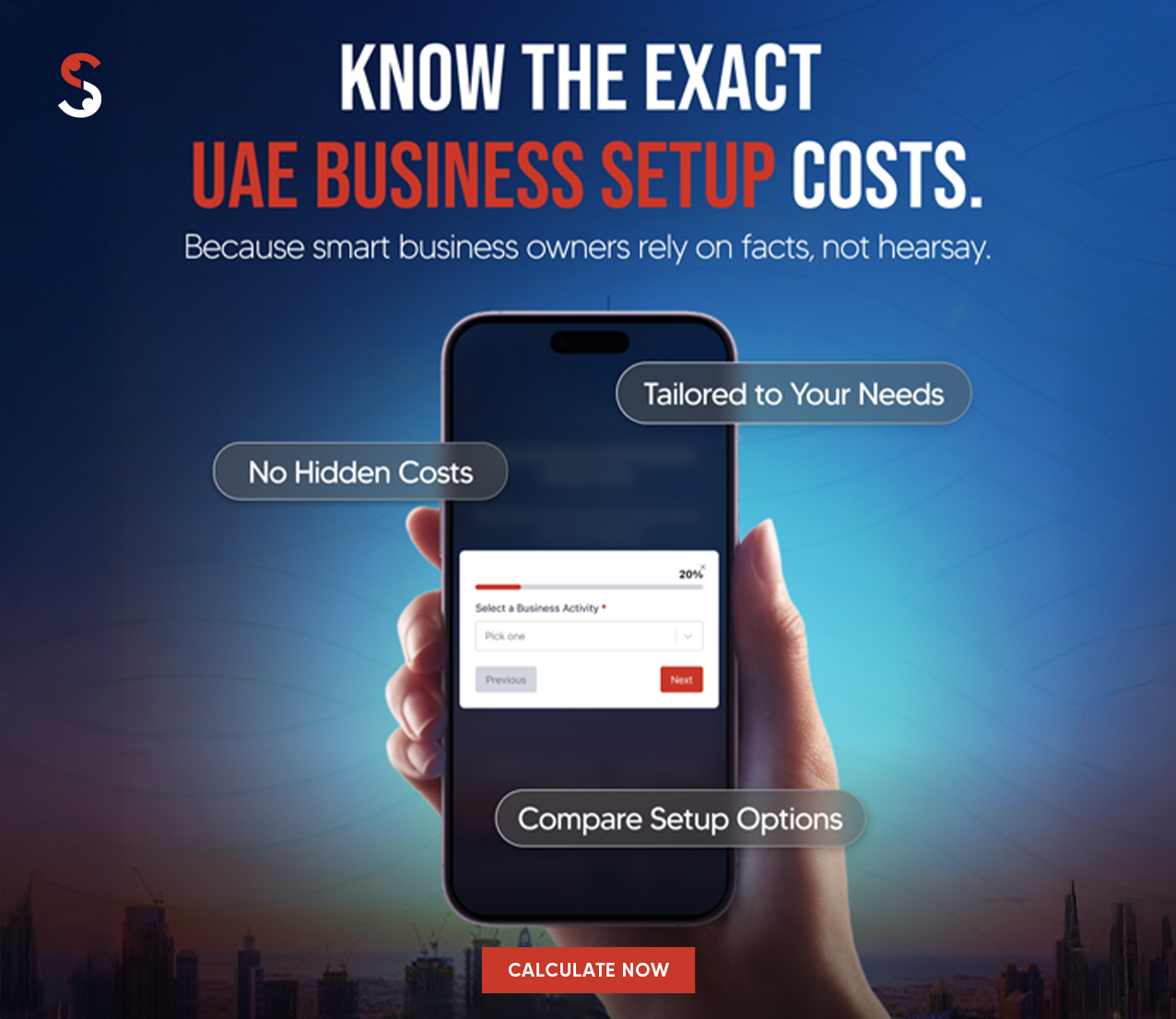Entrepreneurs and investors are increasingly turning to Dubai as a safe and efficient place to register holding companies. A holding company is basically a company that owns shares in other businesses or holds assets like real estate and intellectual property.
It doesn’t usually handle day-to-day operations but gives business owners a way to manage multiple companies and investments under one umbrella. Setting up a holding company in Dubai also brings extra benefits like asset protection, simplified group management, and a stable legal framework.
So, why are more and more entrepreneurs choosing to set up holding companies in Dubai, UAE? The biggest reason is the tax advantage – many free zones offer zero corporate tax, and there are also exemptions on dividends, capital gains, and withholding taxes. On top of that, the UAE has a wide network of double taxation treaties. So, let’s understand everything you need to know about a holding company in the UAE.
What is a Holding Company in the UAE?
A holding company is a type of business entity that doesn’t usually sell products or services on its own. Instead, it owns and controls shares of other companies or manages assets like real estate, trademarks, or investments. In simple terms, it’s like a parent company that oversees and protects the businesses and assets under its umbrella.
Holding Company vs. Operating Company
- A holding company owns or invests in other businesses but does not get involved in their daily operations.
- An operating company, on the other hand, runs the actual business activities such as sales, manufacturing, or providing services.
For example, if a holding company owns a restaurant chain, the holding company doesn’t cook or serve food, the operating company does that. The holding company just owns the restaurant business.
Common Uses of a Holding Company
Holding companies are widely used by entrepreneurs, investors, and large corporations because they offer several advantages:
- Asset Protection: Keeps core assets like property, intellectual property, and investments safe from business risks.
- Tax Efficiency: Helps in reducing overall tax liability by taking advantage of exemptions and double taxation treaties.
- Investment Structuring: Makes it easier to manage multiple businesses under one roof.
- Risk Management: Limits liability by separating assets and operations.
- Long-Term Wealth Planning: Useful for succession planning and passing assets to future generations in a structured way.
Why Set Up a Holding Company in UAE?
Here are the key reasons why setting up a holding company in Dubai makes sense:
- Tax Benefits & Treaties: Many free zones offer 0% corporate tax for qualifying entities. On top of that, there are exemptions on dividends, capital gains, and withholding taxes. The UAE has also signed 140+ double taxation avoidance treaties, which reduce the tax burden for international investors.
- Full Foreign Ownership: Due to recent reforms, foreign investors can own 100% of their companies in most sectors, without the need for a local sponsor. This gives complete control over the business structure and profits.
- Asset Protection & Limited Liability: A holding company separates assets from operational risks. For example, if a subsidiary faces financial difficulties, the holding company’s core assets – like property, intellectual property, or other investments- remain protected.
- Family Wealth & Succession Planning: Many high-net-worth individuals use Dubai holding companies to structure their wealth for future generations. It offers a smooth way to transfer ownership and safeguard family assets.
- Reputation & Credibility: Having a holding company in Dubai boosts your business reputation globally. Many multinational corporations choose Dubai because of its compliance with international standards and its recognition as a low-risk jurisdiction.
Permitted Activities for Holding Companies in Dubai
The activities a holding company can engage in are specific and focused on ownership, management, and protection of investments. Here are the key activities permitted for holding companies in Dubai:
- Owning Shares in Other Companies: A holding company can own partial or full shares of subsidiaries, allowing centralised control over multiple businesses.
- Managing Subsidiaries: It can oversee the operations, strategies, and policies of its subsidiaries without directly being involved in their daily business activities.
- Owning Real Estate and Other Assets: Holding companies can acquire and manage real estate properties, both commercial and residential, as part of their investment portfolio.
- Holding Intellectual Property Rights (IPR): Trademarks, patents, copyrights, and other intellectual property can be owned and licensed through the holding company, creating a strong layer of protection.
- Investment & Wealth Management: It can hold investments such as stocks, bonds, and other financial instruments on behalf of its owners.
- Debt and Risk Management: A holding company can raise capital and allocate funds to its subsidiaries, helping manage financial risks across the group.
- Strategic Decision-Making: The company can set policies, approve budgets, and make long-term business decisions for its group companies.
Legal Structures Available for Holding Companies in Dubai
When setting up a holding company in Dubai, investors can choose from three main structures: Mainland, Free Zone, and Offshore.
1. Mainland Holding Company
Mainland companies are registered under the Dubai Department of Economic Development (DED) and can operate freely within the UAE market. A mainland holding company can own shares in both mainland and free zone businesses, as well as hold local assets like real estate.
Key Features:
- Licensed and regulated by the Department of Economic Development (DED).
- Can invest in mainland and free zone subsidiaries.
- Access to the UAE’s local market and government contracts.
- Allowed to own real estate in approved areas.
- Subject to UAE corporate tax (9% on profits above AED 375,000).
2. Free Zone Holding Company
Free zones are special economic areas designed to attract foreign investors with tax breaks, simplified rules, and 100% ownership. Popular free zones for holding companies include DMCC, IFZA, DIFC, and JAFZA. A free zone holding company is primarily used for international ownership and structuring global investments.
Key Features:
- Offers 100% foreign ownership (no local partner needed).
- Attractive tax benefits (0% corporate tax for qualifying free zone income).
- Exemptions on dividends, capital gains, and withholding tax.
- Easier international business structuring and asset holding.
- Restricted from trading directly with the UAE mainland (unless through an agent or distributor).
3. Offshore Holding Company
Offshore companies are registered in jurisdictions like JAFZA Offshore, RAK International Corporate Centre (RAKICC), or Ajman Offshore. They are designed for international business and wealth management, not for doing business within the UAE. Offshore holding companies are popular for their confidentiality and cost-effectiveness.
Key Features:
- Cannot conduct business within the UAE market.
- Can own assets like property, shares, and intellectual property worldwide.
- Ideal for asset protection, inheritance planning, and global wealth structuring.
- No requirement for office space or local presence.
Documents Required for Setting Up a Holding Company in Dubai
Here’s a list of the commonly required documents:
For Individual Shareholders/Owners
- Passport copies of all shareholders and directors
- Recent passport-size photographs
- Proof of residential address (such as utility bill or tenancy contract)
- CV or business profile of shareholders (sometimes requested in free zones)
- Trade name reservation certificate
For Corporate Shareholders (if the parent company owns the holding company)
- Certificate of Incorporation of the parent company
- Memorandum & Articles of Association (MOA/AOA)
- Board Resolution authorising the setup of the holding company in Dubai
- Valid Trade License copy of the parent company
- Trade name reservation certificate
How to Set Up a Holding Company in Dubai?
Setting up a holding company in Dubai is a structured process, but the exact steps depend on whether you choose Mainland, Free Zone, or Offshore. Below is the general breakdown of the process:
- Choose the Jurisdiction: Decide whether you want to set up your holding company in the Mainland, a Free Zone, or Offshore. This choice depends on your goals, local investments, global expansion, or asset protection.
- Define Ownership Structure: Decide if the holding company will be owned by individual shareholders or a corporate entity (parent company). A Limited Liability Company (LLC) is the most common and popular choice for a holding company.
- Select a Trade Name: Apply for name reservation and ensure your proposed company name complies with UAE naming rules (no offensive words, religious references, or duplication).
- Draft and Notarise the Memorandum of Association (MOA): The MOA outlines the company’s structure, activities, and ownership details. For mainland setups, it must be notarised by a public notary.
- Submit Documents and Pay Fees: Provide all required documents (passport copies, parent company documents, board resolutions, etc.) and pay the applicable registration and licensing fees.
- Obtain your Business License: Once all documents are verified, your holding company license is issued. This license legally allows you to manage subsidiaries, own shares, and hold assets.
- Open a Corporate Bank Account: A crucial step for operationalizing your holding company is to open a corporate bank account, a process for which UAE banks will require a standard set of documents, including the company’s trade license, certified incorporation documents such as the Memorandum of Association (MOA), comprehensive details of all shareholders and directors, and valid proof of the company’s intended business activities.
- Apply for Visas (if needed): Once your company is officially registered, you can apply for residency visas for shareholders, directors, and employees. The number of visas available is typically linked to the size of your office space.
What is the Cost of Setting Up a Holding Company in Dubai?
The cost of starting a holding company in Dubai mainly depends on the jurisdiction you choose – Mainland, Free Zone, or Offshore. Each option comes with its own license fees and requirements.
If you go for a Mainland holding company, the license cost usually starts from AED 15,000 – 30,000. This includes trade license fees, government approvals, and office space requirements, which are mandatory on the mainland. A Free Zone holding company is slightly more affordable, with package costs ranging between AED 10,000 – 25,000. The final amount depends on the free zone authority and whether you choose a physical office or a more economical flexi-desk facility.
The Offshore holding company option is the most budget-friendly. Setup costs typically start from AED 10,00 – 15,000, as there’s no requirement for physical office space in Dubai.
Apart from license fees, you should also account for additional expenses like visa applications, office rent (if required), documentation, and government charges.
For more accurate cost breakdowns, contact experts at Shuraa Business Setup.
Ready to Set Up Your Holding Company in Dubai?
Setting up a holding company in Dubai is a smart move if you want to protect your assets, manage multiple businesses, and enjoy tax advantages. Of course, the process involves choosing the right jurisdiction, handling paperwork, and staying compliant with local regulations.
At Shuraa Business Setup, we make holding company formation in Dubai simple and stress-free. From company registration and licensing to compliance, bank account opening, and tax advisory—we’ve got you covered. Whether you’re looking at a Mainland, Free Zone, or Offshore setup, our team ensures everything is taken care of smoothly. Ready to get started? Reach out to Shuraa today.
Frequently Asked Questions (FAQs)
1. How do I set up a holding company in Dubai?
To set up a holding company in Dubai, you must choose a jurisdiction (free zone or mainland), reserve a trade name, define your business activities, and obtain the appropriate business license from the relevant authority. You’ll then need to prepare legal documents like a Memorandum of Association, lease office space, and open a corporate bank account to complete the process.
2. Can I set up a holding company in a Dubai Free Zone?
Yes, Dubai Free Zones allow holding company setups, offering benefits like 100% foreign ownership, tax exemptions, and flexible profit repatriation.
3. What activities can a holding company in Dubai do?
A holding company can:
- Own shares in other companies
- Manage and control subsidiaries
- Hold real estate and assets
- Provide strategic oversight
4. How much does it cost to set up a holding company in Dubai?
The license fee usually starts around AED 12,000–20,000, but the total cost may vary depending on the jurisdiction, office space requirements, and additional approvals.
5. Why should I set up a holding company in Dubai?
Dubai offers strong asset protection, tax efficiency, global connectivity, political stability, and a flexible business environment.
Disclaimer: The information in this post is for general guidance only and may change due to updates in government policies or regulations.










